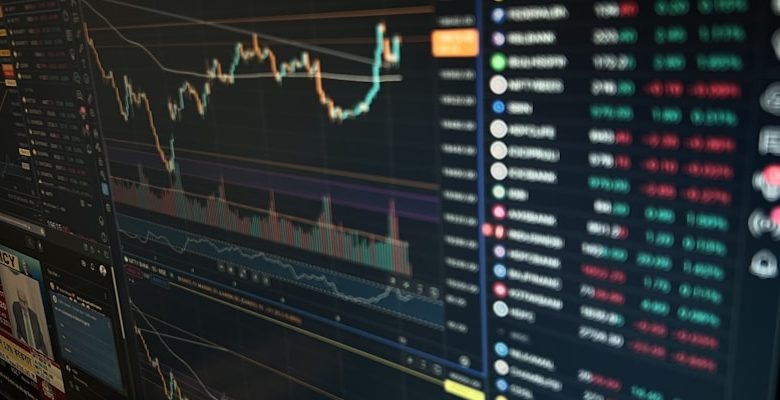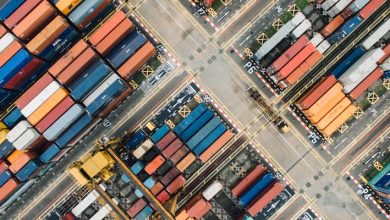How Decentralized Exchanges are Changing the Trading Landscape

- Understanding the rise of decentralized exchanges
- The advantages of trading on decentralized platforms
- Exploring the impact of decentralized exchanges on traditional markets
- Challenges and opportunities in the decentralized trading landscape
- How decentralized exchanges promote financial inclusion
- The future of trading: Decentralized exchanges leading the way
Understanding the rise of decentralized exchanges
Decentralized exchanges (DEXs) have been gaining popularity in recent years due to their unique features and benefits. Unlike centralized exchanges, DEXs operate on a peer-to-peer network, allowing users to trade directly with one another without the need for an intermediary. This decentralized nature eliminates the risk of hacking and fraud that is often associated with centralized exchanges.
One of the key reasons behind the rise of DEXs is the growing concern over security and privacy in the cryptocurrency space. With centralized exchanges being vulnerable to cyber attacks and data breaches, many traders are turning to DEXs as a safer alternative. By keeping control of their funds and private keys, users can trade with peace of mind knowing that their assets are secure.
Another factor driving the popularity of DEXs is the desire for greater financial freedom. Centralized exchanges are often subject to regulatory scrutiny and can be forced to comply with government regulations, which can limit the trading options available to users. DEXs, on the other hand, operate outside of the traditional financial system, allowing users to trade a wider range of assets without restrictions.
Furthermore, the rise of decentralized finance (DeFi) has also played a significant role in the growth of DEXs. DeFi projects have been leveraging DEXs to create innovative financial products and services, such as decentralized lending and borrowing platforms, which have attracted a new wave of users to the space. As DeFi continues to expand, DEXs are expected to play an even larger role in shaping the future of finance.
Overall, the rise of decentralized exchanges can be attributed to a combination of factors, including security concerns, desire for financial freedom, and the growth of DeFi. As more users recognize the benefits of trading on DEXs, the landscape of cryptocurrency trading is likely to continue evolving towards a more decentralized and user-centric model.
The advantages of trading on decentralized platforms
Decentralized platforms offer several advantages over traditional centralized exchanges. One of the key benefits is increased security. By eliminating a single point of failure, decentralized exchanges reduce the risk of hacking and other security breaches. Additionally, decentralized platforms provide users with more control over their funds, as trades are executed directly from their wallets without the need to deposit funds on an exchange.
Another advantage of trading on decentralized platforms is improved privacy. Centralized exchanges often require users to complete KYC (Know Your Customer) procedures, which can compromise their anonymity. Decentralized exchanges, on the other hand, allow users to trade without revealing their identity, providing a greater level of privacy.
Decentralized platforms also offer greater transparency. Since trades are recorded on a public blockchain, users can verify the integrity of the exchange and ensure that it is operating fairly. This transparency helps to build trust among users and reduces the risk of fraud.
Furthermore, decentralized exchanges are often more accessible to a wider range of users. Without the need for a central authority to approve trades, anyone with an internet connection can participate in trading on decentralized platforms. This increased accessibility helps to level the playing field and democratize the trading landscape.
In conclusion, trading on decentralized platforms offers a range of benefits, including increased security, privacy, transparency, and accessibility. As the popularity of decentralized exchanges continues to grow, more traders are likely to embrace this new way of trading in the cryptocurrency market.
Exploring the impact of decentralized exchanges on traditional markets
Decentralized exchanges have been gaining popularity in recent years, offering a new way for traders to buy and sell cryptocurrencies without relying on a central authority. This shift towards decentralized trading platforms has raised questions about the impact they may have on traditional markets.
One of the key ways decentralized exchanges are changing the trading landscape is by providing a more secure and transparent trading environment. With transactions being executed directly between users through smart contracts, the risk of hacks and manipulation that can occur on centralized exchanges is significantly reduced. This increased security can help build trust among traders and attract more participants to the market.
Additionally, decentralized exchanges are also known for their lower fees compared to traditional exchanges. By cutting out intermediaries and automating the trading process, users can save money on transaction costs. This cost-effectiveness can make decentralized exchanges an attractive option for traders looking to maximize their profits.
Furthermore, the rise of decentralized exchanges has the potential to impact liquidity in traditional markets. As more traders shift towards decentralized platforms, liquidity may be spread out across different exchanges, leading to fragmentation. This fragmentation could make it more challenging for traders to execute large orders quickly and efficiently.
Overall, the impact of decentralized exchanges on traditional markets is still evolving. While they offer benefits such as increased security, lower fees, and greater accessibility, they also pose challenges in terms of liquidity and market fragmentation. As the popularity of decentralized exchanges continues to grow, it will be interesting to see how they shape the future of trading.
Challenges and opportunities in the decentralized trading landscape
Decentralized exchanges present a new set of challenges and opportunities for traders looking to navigate this evolving landscape. One of the main challenges is the lack of centralized authority to regulate transactions, which can lead to potential security risks. However, this decentralized nature also offers opportunities for greater privacy and control over assets.
In addition, decentralized exchanges face challenges in terms of liquidity and speed of transactions compared to their centralized counterparts. This can make it more difficult for traders to execute large orders quickly. On the other hand, decentralized exchanges provide opportunities for direct peer-to-peer trading without the need for intermediaries, reducing costs and potential points of failure.
Furthermore, the decentralized trading landscape is still relatively new and evolving rapidly, presenting both challenges and opportunities for traders. As more users adopt decentralized exchanges, there is potential for increased liquidity and a more diverse range of trading pairs. However, the lack of regulation and oversight can also lead to potential risks for traders, such as market manipulation and fraud.
Overall, the decentralized trading landscape offers a unique set of challenges and opportunities for traders to navigate. By understanding the potential risks and rewards of decentralized exchanges, traders can make informed decisions to take advantage of this evolving trading landscape.
How decentralized exchanges promote financial inclusion
Decentralized exchanges play a crucial role in promoting financial inclusion by providing access to a wider range of individuals who may not have had the opportunity to participate in traditional financial systems. These exchanges eliminate the need for intermediaries, allowing users to trade directly with each other without relying on centralized institutions.
By leveraging blockchain technology, decentralized exchanges offer a more democratic and transparent trading environment. This level playing field gives individuals from all walks of life the chance to engage in trading activities, regardless of their geographical location or financial status.
Furthermore, decentralized exchanges enable users to retain control of their funds at all times, reducing the risk of theft or fraud. This increased security and autonomy empower individuals who may have been excluded from traditional financial systems due to concerns about privacy and security.
In addition, decentralized exchanges often have lower fees compared to centralized exchanges, making trading more accessible to individuals with limited financial resources. This cost-effective approach can help bridge the gap between the financially privileged and the underserved, fostering greater financial inclusion across the board.
The future of trading: Decentralized exchanges leading the way
Decentralized exchanges are revolutionizing the way trading is done in the financial markets. These platforms offer users greater control over their assets and eliminate the need for intermediaries. As a result, more traders are turning to decentralized exchanges for their trading needs.
One of the key advantages of decentralized exchanges is their security. By using blockchain technology, these platforms are able to provide a level of security that is unmatched by centralized exchanges. This has made decentralized exchanges a popular choice for traders who are concerned about the safety of their assets.
Another benefit of decentralized exchanges is their transparency. Because transactions are recorded on the blockchain, users can easily verify the authenticity of trades. This level of transparency is crucial in building trust among traders and ensuring the integrity of the market.
Decentralized exchanges are also leading the way in terms of innovation. These platforms are constantly introducing new features and functionalities that make trading more efficient and user-friendly. As a result, decentralized exchanges are quickly becoming the go-to choice for traders who are looking for a more advanced trading experience.



